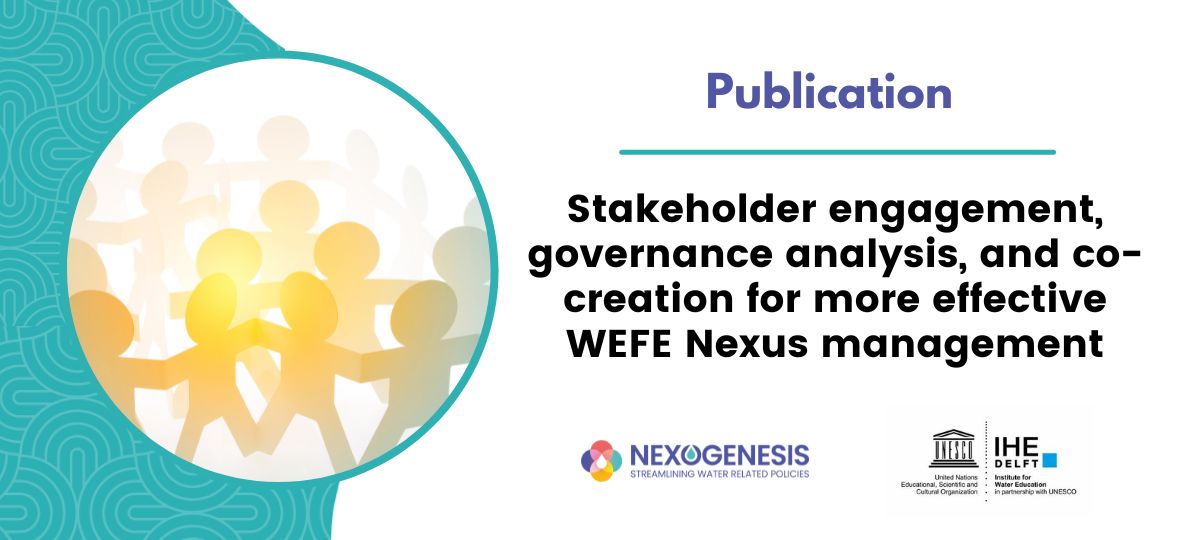
The Water-Energy-Food-Ecosystems (WEFE Nexus) is a coherent interconnected resource system, strongly interacting with ecosystems (to form the WEFE Nexus), and supporting societal development The WEFE Nexus is extraordinarily complex, with each sector interacting with the other sectors and being affected by ‘externalities’ such as the impacts of climate change and socio-economic developments, which modulate resource demand, consumption, and exploitation, and in so doing, lead to degrading ecosystems. Impacts, actions, and changes in one part of this interconnected system have ‘ripple’ effects throughout the rest of the system.
Dr Janez Sušnik from IHE Delft Institute for Water Education and Coordinator of the NEXOGENESIS project aims to break down the complexity of the WEFE nexus by sharing insights based on his experience in the project in a series of 3 articles.
The first article was showcasing the role of NEXOGENESIS and its contribution to the WEFE nexus, you can find it here. In this second article, the light is shed on the importance of stakeholder engagement to create policy recommendations and actions towards more holistic, integrated natural resources management
Access the full article on stakeholder engagement here: Stakeholder engagement, governance analysis, and co-creation for more effective WEFE Nexus management
And stay tuned for the last article of the series on the use of machine learning.